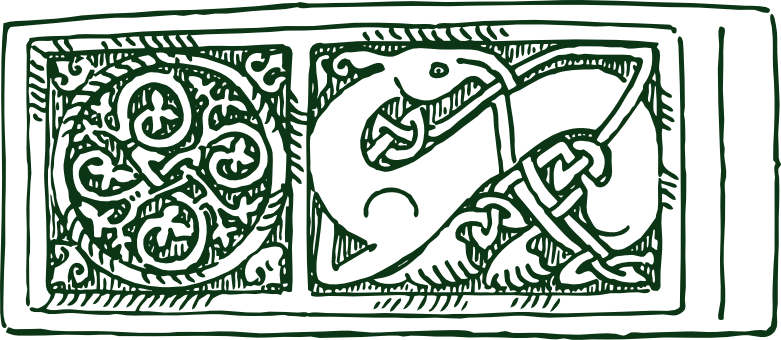Patrick Crichton, M.A., F.S.A.Scot.
Patrick Crichton was born in the Wirral, his parents being from Scotland. After school at Moffat and Bryanston in Dorset, he had a gap year as a deck boy on the Blue Funnel liner ‘Philocletes’ sailing to Korea and Japan. New College, Oxford followed, and after graduating in P.P.E., he joined the Royal Navy, serving on a destroyer in the Atlantic, and then as a navigating officer on motor torpedo boats. Before D-day his vessel carried out the reconnaissance of various French beaches. On D-day itself he navigated the leading boat to Juno beach with the Canadian General in charge of that area on board. Six weeks later his ship was mined and Patrick suffered a shattered knee and a double fracture of the spine.
After months in hospital and marriage to Barbara, he joined the Colonial Service. He became a district officer and a magistrate in Kenya and experienced six difficult months in the area around Mount Kenya during the Mau Mau emergency. During his later years in Kenya he was moved to Nairobi and became Deputy Director of Personnel during the period leading up to independence. He remained in this post until a year after independence and then returned to Britain after eighteen years in Kenya.
He now joined the Personnel Department of Guinness Overseas Ltd., and remained with this company for eleven years. Early retirement brought him to Tobermory, but soon afterwards he accepted the invitation to become Comptroller at Mount Stuart for the Marquis of Bute. Final retirement was followed by the move to Tinwald in 1988 for family reasons.
Patrick’s interests were many and varied, including sailing, golf, music, birdwatching, scouting and the Church. He was Colony Commissioner for Scouting in Kenya, and founded the first multiracial Sea Scout troop which sailed on Nairobi Dam. He was also County Commissioner for Scouting in Buckinghamshire for three years. In Nairobi he served as an elder of St Andrews Church, and much later he was an elder of Tinwald Church. Patrick also played a very active part in the campaign to bring a University to the South of Scotland and, when this was successful, he fervently hoped that more and more links would be formed between the Crichton Campus universities and the local community.
Of particular interest to the members of our Society were his antiquarian and his historical interests. when in Bute he was a member of the local natural history and archaeological society, and he helped to rescue the galley ‘Guildford’ from a ruinous boat house on the island. This vessel is now displayed in the Linthouse Building of the Scottish Maritime Museum at Irvine, another of Patrick’s many interests. A fellow of the Society of Antiquaries of Scotland, he also joined our Society when he lived at Tinwald, and served as a memorable President between October 1998 and October 2001. Many of us remember with great pleasure his Presidential Address ‘From Pax Romana to Pax Britannica: Policing the Frontier’, which compared the border problems of the Romans in Britain and the similar difficulties of the British in their East Africa colonies and protectorates. Patrick instigated the presentation of a set of our Transactions and of Kirkpatrick Fleming: An Anatomy of a Parish to Glasgow University at the Crichton Campus. He also represented our Society on the committee of the Dig History organisation, for which he served as Treasurer.
Patrick was erudite, energetic and endowed with a sometime anarchic but never unkind sense of humour. It was not surprising that his brother, the late Charles Crichton, was the Director of such films as The Lavendar Hill Mob and A Fish Called Wanda. Even during his last illness Patrick’s fertile mind was full of ideas and suggestions.
Partick Crichton died in April 2003 at the age of 82, leaving his wife, two sons and their wives and two grandchildren.
John H.D. Gair

